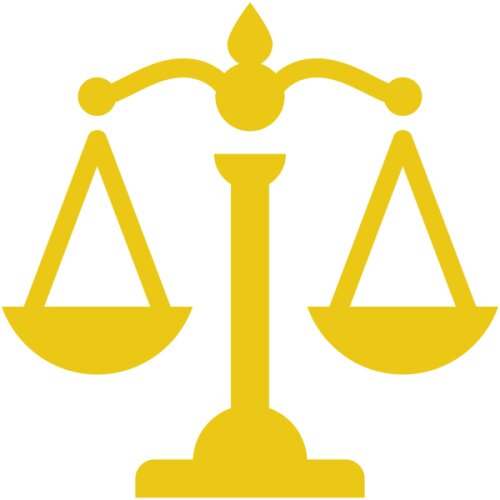Best Divorce & Separation Lawyers in Newcastle
Share your needs with us, get contacted by law firms.
Free. Takes 2 min.
Free Guide to Hiring a Family Lawyer
List of the best lawyers in Newcastle, South Africa
South Africa Divorce & Separation Legal Questions answered by Lawyers
Browse our 1 legal question about Divorce & Separation in South Africa and read the lawyer answers, or ask your own questions for free.
- What can I do to get my divorce settlement
- I got divorced last November, but I haven't received my settlement. It's a story from one to another, so what must I do to get my settlement
-
Lawyer answer by MAH&CO.
Hello, I'm sorry to hear about your situation. If your divorce was finalized last November and you still haven’t received your settlement, it’s important to take legal steps without further delay. In most cases, the court's judgment or settlement agreement...
Read full answer
About Divorce & Separation Law in Newcastle, South Africa
Divorce and separation in Newcastle, like elsewhere in South Africa, are governed by both national and local legal frameworks. The process is handled by the courts and involves the dissolution of marriage, the division of assets, and arrangements concerning any children involved. In South Africa, there are two main types of divorce proceedings: contested and uncontested. An uncontested divorce is generally quicker and less costly, while a contested divorce may involve lengthy negotiations and court proceedings.
Why You May Need a Lawyer
Divorce and separation can be complex, especially when it comes to legal rights and responsibilities. Individuals may require legal help in several situations, including when there are disputes over asset division, child custody arrangements, spousal support, or in cases where domestic violence is involved. Engaging a lawyer ensures that sensitive issues are handled professionally and that one’s legal rights are protected throughout the process.
Local Laws Overview
In Newcastle, South African law governs divorce and separation with specific rules regarding the distribution of marital property, spousal maintenance, and child custody. The Matrimonial Property Act influences how assets are split, impacting community of property, antenuptial contracts, and accrual systems. Additionally, the Children’s Act prioritizes the best interests of children in custody decisions, while the Maintenance Act outlines the obligations for financial support between spouses or towards children.
Frequently Asked Questions
What is the difference between contested and uncontested divorce?
A contested divorce involves disputes between parties over issues such as asset division or child custody, necessitating court intervention. An uncontested divorce occurs when both parties agree on all terms without needing formal court hearings, making it quicker and less costly.
How is property divided during a divorce in Newcastle?
Property division follows the marital regime under which the couple was married. In the community of property, assets are equally divided. Antenuptial contracts can alter this, potentially including an accrual system where only growth in assets since the marriage is shared.
What factors influence child custody decisions?
Child custody is determined based on the best interests of the child, considering factors like the child’s relationship with each parent, their living situation, and the ability of each parent to provide for their needs.
How can one apply for spousal support?
Individuals seeking spousal support must apply through the court, proving the need for maintenance and the other party's ability to pay. The court considers the standard of living during marriage, the duration of the marriage, and each party’s financial situation.
What if my partner does not agree to a divorce?
If a spouse does not agree to a divorce, it becomes contested. Legal intervention becomes necessary to resolve disagreements through mediation or court proceedings.
Can foreign nationals get divorced in Newcastle?
Yes, foreign nationals can file for divorce in Newcastle if they are residing in South Africa or if their marriage was constituted under South African law.
How long does it take to get divorced?
An uncontested divorce might conclude in a matter of weeks, whereas a contested divorce can take several months or even years, depending on court schedules and the complexity of disputes.
What rights do I have concerning visitation if I don't have custody?
Non-custodial parents typically have visitation rights which can be arranged through court orders, considering the child's best interests and logistical circumstances.
Is mediation required before going to court?
Mediation is not mandatory, but it is encouraged as it can help resolve disputes amicably without the need for costly and lengthy court proceedings.
What should I do if I'm subject to domestic abuse?
If you face domestic abuse, seek immediate protection through law enforcement and protective orders. Legal professionals can also assist in securing your safety and rights through appropriate legal channels.
Additional Resources
Several resources are available for those seeking information or assistance with divorce and separation in Newcastle. The Department of Justice and Constitutional Development provides guidelines and support. Organizations such as Legal Aid South Africa offer legal help to those who cannot afford private attorneys. Additionally, local family courts can offer advice on procedural matters.
Next Steps
If you require legal assistance with divorce and separation, start by consulting with a family law attorney in Newcastle. Gather necessary documents, such as marriage certificates and financial records, to provide your lawyer with a comprehensive view of your situation. Schedule an initial consultation to discuss your case, explore your options, and agree on a strategy moving forward. Engaging professional legal services ensures your rights are protected and can lead to a more favorable outcome.
Lawzana helps you find the best lawyers and law firms in Newcastle through a curated and pre-screened list of qualified legal professionals. Our platform offers rankings and detailed profiles of attorneys and law firms, allowing you to compare based on practice areas, including Divorce & Separation, experience, and client feedback.
Each profile includes a description of the firm's areas of practice, client reviews, team members and partners, year of establishment, spoken languages, office locations, contact information, social media presence, and any published articles or resources. Most firms on our platform speak English and are experienced in both local and international legal matters.
Get a quote from top-rated law firms in Newcastle, South Africa — quickly, securely, and without unnecessary hassle.
Disclaimer:
The information provided on this page is for general informational purposes only and does not constitute legal advice. While we strive to ensure the accuracy and relevance of the content, legal information may change over time, and interpretations of the law can vary. You should always consult with a qualified legal professional for advice specific to your situation.
We disclaim all liability for actions taken or not taken based on the content of this page. If you believe any information is incorrect or outdated, please contact us, and we will review and update it where appropriate.









